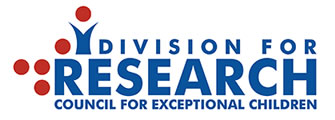
Despite the fact that holidays are supposed to be a time of celebration, many people also report that it can be a very stressful time due to the pressure to go everywhere, do everything, and make everyone happy. Pinterest boards displaying picture-perfect ideas for holiday recipes, beautiful table settings, time-consuming gift ideas, and elaborate parties and get-togethers create impossible standards. Measuring your family’s holiday against other people’s airbrushed and curated ideals can create more anxiety. Furthermore, for families with tight budgets, the added burden of stretching an already worn-out income to cover gifts and other holiday expenses can feel like an impossible challenge.
Fortunately, we have the power to make careful decisions about how we approach the holidays. A few wise choices can reduce our levels of stress and increase our feelings of joy and happiness so that they can last long after the end of the holiday break.
Managing the Rush
One difficult problem during the holidays is that the schedule can get overfull. There are workplace celebrations; family, friend or neighborhood parties; religious organization activities; and even end of term school functions. Feeling pressured to fit everything in can contribute to more stress. Taking the time to evaluate your priorities in order to choose the most important events and let go of the need to do all of the rest can release some of the pressure. Given that multiple family members might be invested in different activities, calling a family meeting to decide which activities to keep and which to let go might reduce conflict. For example, every family member could choose one or two activities to do and the rest would be moved to low priority status.
Rituals and Experience Instead of Things
The good news for families with tight budgets is that there is clear evidence that prioritizing experiences over things is significantly more likely to increase people’s happiness. The latest toy or gadget might make kids (and even adults) ecstatic for a few hours or even days, but research suggests that the happiness obtained from material objects is short-lived. Instead, several studies suggest that novel and pleasurable experiences that create good memories are more likely to lead to longer lasting happiness. So, instead of giving each family member an expensive gift, perhaps you might consider giving them a small gift and put your money toward a family road trip or local adventure – or you could not spend money at all but have a special family outing doing a free local activity.
Additionally, other studies have suggested that family holiday rituals, such as following family religious practices or serving food at a soup kitchen together, creates greater closeness and leads to a better sense of well-being over time. Again, these cost little to nothing, but increase our well-being.
Savoring the Moment
Another inexpensive and low maintenance way to increase holiday joy and decrease stress is to take time to savor the experiences that you choose to have. A growing body of research supports the idea that slowing down for a moment, taking the experience in, and paying careful attention to what is going on around you and the pleasure you are feeling in the moment can greatly enhance your feelings of well-being over time. In particular, there is some evidence that taking time to really be aware of and to enjoy these close and warm relationship experiences – both with your partner and with your kids – leads to better family functioning. So, as you develop those family rituals and have those fun experiences with your kids, make sure to slow down and really pay attention while they are happening. The beauty in this approach is that savoring seems to work best when you have less. So, if you are rushed and busy with lots of demands on you, taking time to enjoy the few moments of fun that you do have can really increase their impact.
Feeling and Expressing Gratitude
Finally, as you stop and savor these important moment with your family, you can also take time to reflect on your gratitude for each of them. A growing body of evidence indicates that our ability to experience and practice gratitude on a daily basis has a host of positive outcomes – for relationships and for physical and mental health. These effects are further enhanced when you take the time to express gratitude with others. Taking a few moments, even just a minute or two, to count your blessings, and to tell you loved ones how much you value them, can go a long way toward reducing overall levels of distress and increasing closeness and well-being.
In sum, although the holidays can be stressful, there are some very simple proven strategies that you can try that can reduce the hectic pace and increase your sense of pleasure, closeness, and warmth with the people you love.
Proper citation link for this blog post:
Gordon, K. C. (2016, November 16). How to not just survive, but thrive, during the holidays. Retrieved from http://infoaboutkids.org/blog/how-to-not-just-survive-but-thrive-during-the-holidays
















